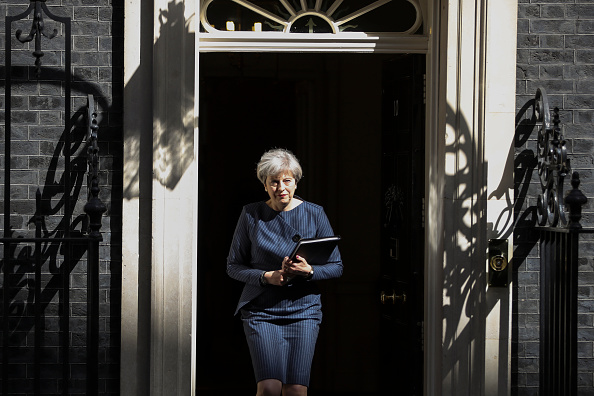I worked on the first TV debate of the Scottish referendum. I was involved in countless more. I was to be found on the production team for televised clashes during the 2015 general election and the 2016 vote for Holyrood. So I speak with some experience when I say TV debates are a terrible idea. Theresa May’s refusal to participate in any is the first good news to come out of the general election.
When the format debuted in 2010, I was optimistic. Here was an opportunity to extract a good deal more honesty and accountability from the overspun and media-managed Gordon Brown and David Cameron. Cleggmania (remember that? Come to think of it, remember him?) was vapid and driven by the sort of earnest millennial who shared a couple of memes on Facebook, didn’t bother to vote, then threw a strop outside Lib Dem HQ when the coalition was announced.
We learned little of substance from this first foray into American-style campaigning but that hardly mattered. It was ‘innovative’ and gave the political class something to tweet about and was therefore ‘An Unquestionably Good Thing’.
By 2015, the pretence of lofty ambitions had been dropped. The broadcasters wanted as many debates as possible because the inclusion of Nigel Farage and Nicola Sturgeon would make good telly. Again, it failed to capture the mood of the country. From watching the debates, one would have assumed Britain was counting down to its first Labour/SNP/Green coalition. In fact, the nation recoiled from the prospect of a weak Labour prime minister at the mercy of the Celtic and communist fringes and handed David Cameron a majority. None of this mattered to those of us making these programmes. They got ratings and social media buzz. Good governance be damned.
There is more joy in Heaven over a cynic who repents and I have come to the conclusion that this format only further trivialises our political culture. It rewards politicians for pithy one-liners and conditions the audience to think in soundbites. Anyone who essays a nuanced or complex answer is greeted with suspicion — what are they trying to hide? Far from being informative, TV debates treat information like expositional dialogue in a drama series — a necessary evil to be got through quickly.
The effect is vulgarisation. When Alex Salmond used the first debate of the 2014 referendum to talk about a possible alien invasion after independence — a failed attempt at satirising No campaign scaremongering — he damaged his reputation for seriousness. The truth may have been out there but it was the facts of a currency union the voters were interested in. Salmond had performed to the format but misjudged the public.
Theresa May is no more obliged to perform for ITV and BBC producers than she is to do the now-standard web chat with Mumsnet. (Her stance on Downton Abbey vs Broadchurch would tell us more about the PM than anything Dimbleby might ask.) If anything, her snubbing of a televised face-off is self-sacrificing. The format would play to her strengths while exposing the weakness of Jeremy Corbyn’s position. She could feasibly present a soft-boiled Brexit to the country, one that navigates the divisions on her backbenches, and win studio applause from Remainers and Leavers alike. Corbyn could speak only for himself and the obscure Stalinist junta at the top of the Labour Party because so many of his MPs are openly hostile to him.
Mrs May cannot object to debates as an encroachment of presidential politics; she sprang a general election on her Cabinet that left her most senior ministers flabbergasted. Nor can she parlay this into an excuse for avoiding scrutiny. Declining a prime-time circus is no justification for dodging thorough interrogation by journalists.
What she can say is that TV debates were an interesting experiment but they proved unsuccessful — and that they undermine the sober affair of choosing who will steer Britain through Brexit, spanner-throwing by Nicola Sturgeon, and the threats posed by Russia, Iran and North Korea. Yes, it might be entertaining to see the PM grilled on whether Brexit still means Brexit. Sure, there would be novelty value in Jeremy Corbyn appearing on a platform with no Hezbollah flag nailed to the wall behind him. And Unionists would relish the sight of Sturgeon squirming as she was pressed on Scotland’s £15bn deficit and her ever-shifting stance on the EU.
But politics is not show business for ugly people. It’s the serious business of governing a country at a time of unparalleled risk and opportunity. If broadcasters want political drama, they should commission a new series of the West Wing.
Stephen Daisley is a columnist for the Scottish Daily Mail








Comments